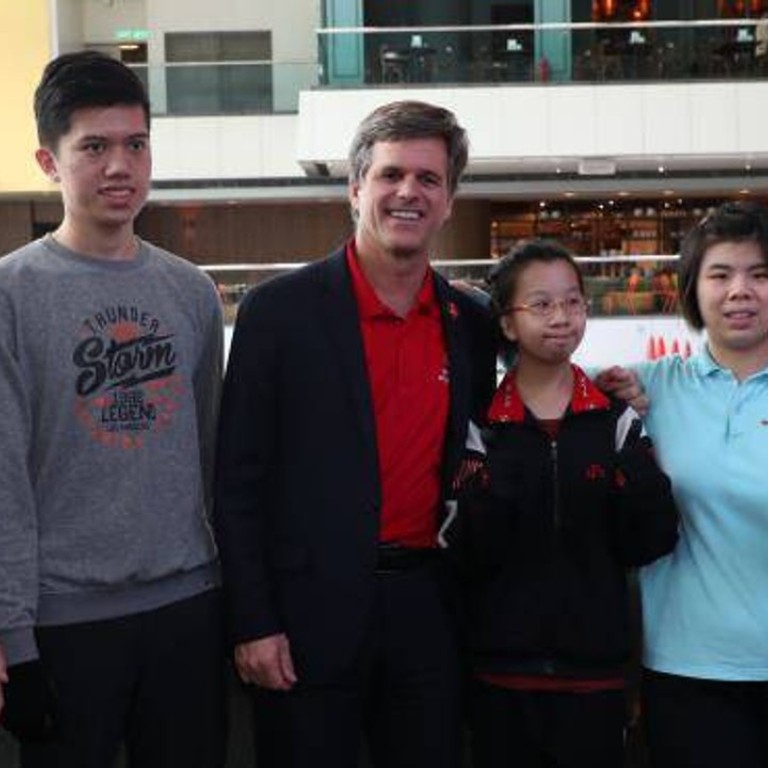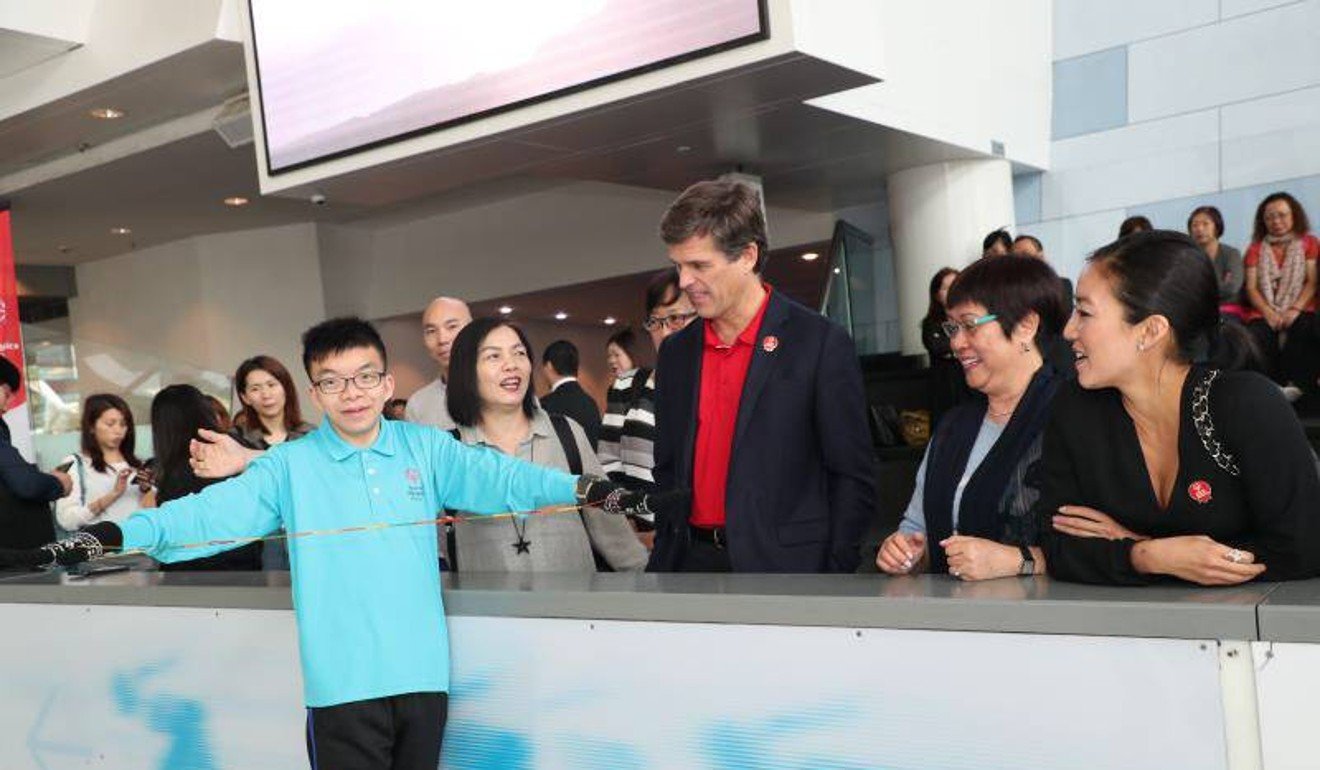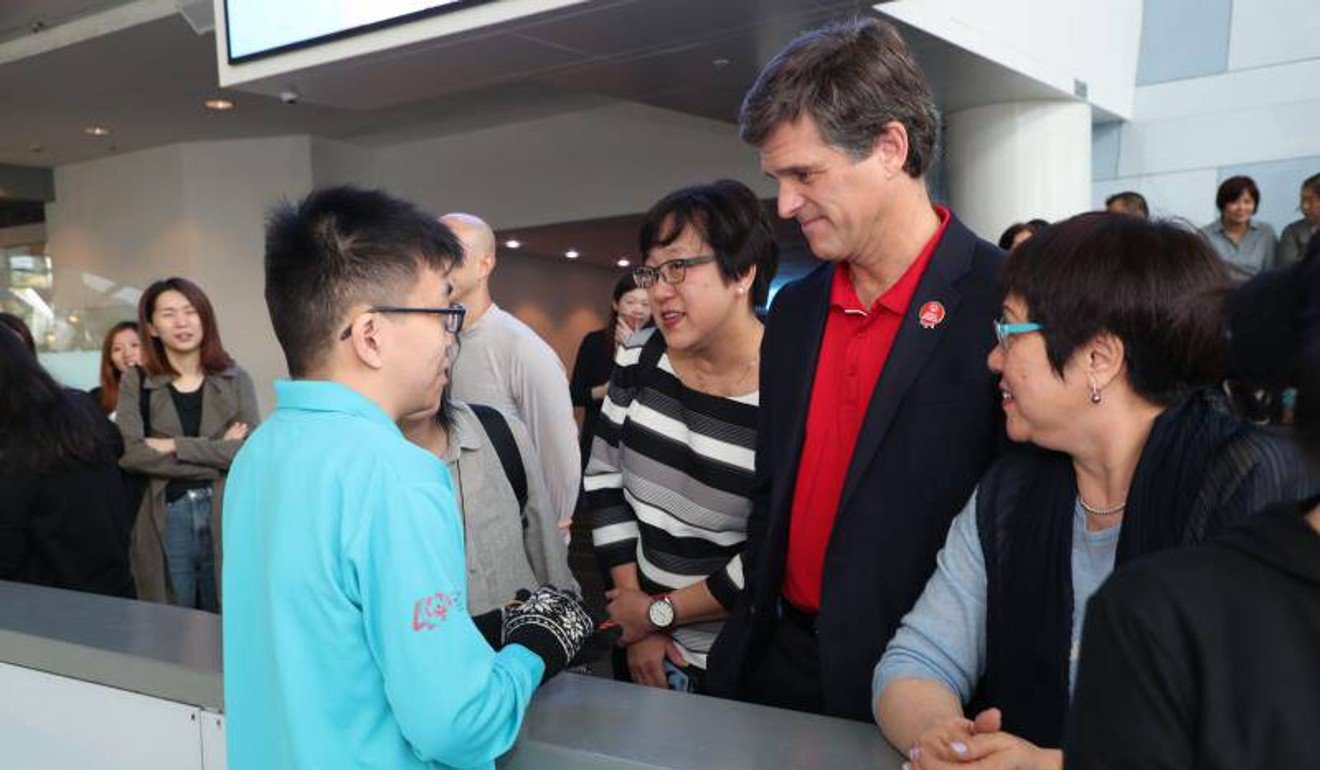
Two in three Special Olympics athletes in Hong Kong unable to compete because of city’s lack of facilities
Baptist University study on sports for disabled people recommended several objectives to provide more and better barrier-free facilities and affordable programmes
More than two-thirds of Hong Kong’s Special Olympics athletes have been unable to compete in their sports because of a lack of locally-organised competitions and games, according to the chairman of the sporting event, Timothy Shriver.
Ideally, 80 to 90 per cent of the 11,765 athletes, who have trained in their sports for a minimum of eight weeks, should have the opportunity to compete, Shriver said.
But just 3,681 of them, or less than a third, had the opportunity to do so as only 21 local competitions – which are crucial to the development and inclusiveness of intellectually disabled people in society – were held in the city last year.
“We should have five times more competitions than we have now,” Shriver said.
As the global trend shifts towards increased inclusiveness and recognition of different rights of people, the Special Olympics, which Shriver stresses is beyond a biannual global sporting event but an important movement that underscores diversity and inclusiveness through sports, becomes ever more relevant.
Hong Kong has between 71,000 to 101,000 intellectually disabled people, according to the latest available government data.
Shriver and his team were in Hong Kong this week to raise funds for the movement where he met Chief Executive Carrie Lam Cheng Yuet-ngor.

Across the East Asian region, the number of Special Olympics athletes has grown exponentially over the past 15 years – from less than 50,000 to more than 1 million. The increase in number stemmed from greater awareness, family and health programmes that have persuaded attitude and policy changes, Shriver said.
China saw the biggest growth, benefiting from a top-down approach where endorsement by the central government set the government machinery in the major cities in motion to recognise and invest in the movement, he said.
In mainland China, a first step towards inclusive education, or unified schools, is emerging where regular schools are partnering with special schools to work together to create curriculums and programmes.

Even though sports as a unifier has helpedbreak down the stereotypes about intellectually disabled people, the cultural stigma remains.
In its consultancy study on sports for disabled people in Hong Kong last year, that was commissioned by the government, Baptist University recommended that the first and paramount policy objectives in the next 10 to 20 years should be to provide more and better barrier-free sports facilities and affordable sports programmes, organise more international sports activities and recruit more coaches.
Shriver said building local community assets and networks were more crucial to the development and integration of intellectually disabled people with their communities, where sports and games provide an important platform.
“Our real opponent, obstacle, remains – discrimination,” Shriver said.
“Our real asset … playing and experiencing and encountering our athletes in a transformation not just for them for everyone else too.”
A Home Affairs Bureau spokeswoman said: “Having completed a consultancy study and public consultation in 2016, the government has developed a detailed work plan to support athletes with intellectual and physical disabilities and to promote sports for people with disabilities.
“The key measures include increasing the variety and number of sports programmes, allowing priority booking services in specified sports venues, introducing full-time elite athletes training and providing recreation and sports services such as centre-based sports activities for the disabled.”


